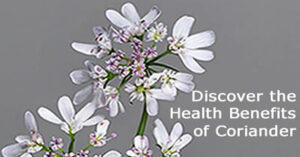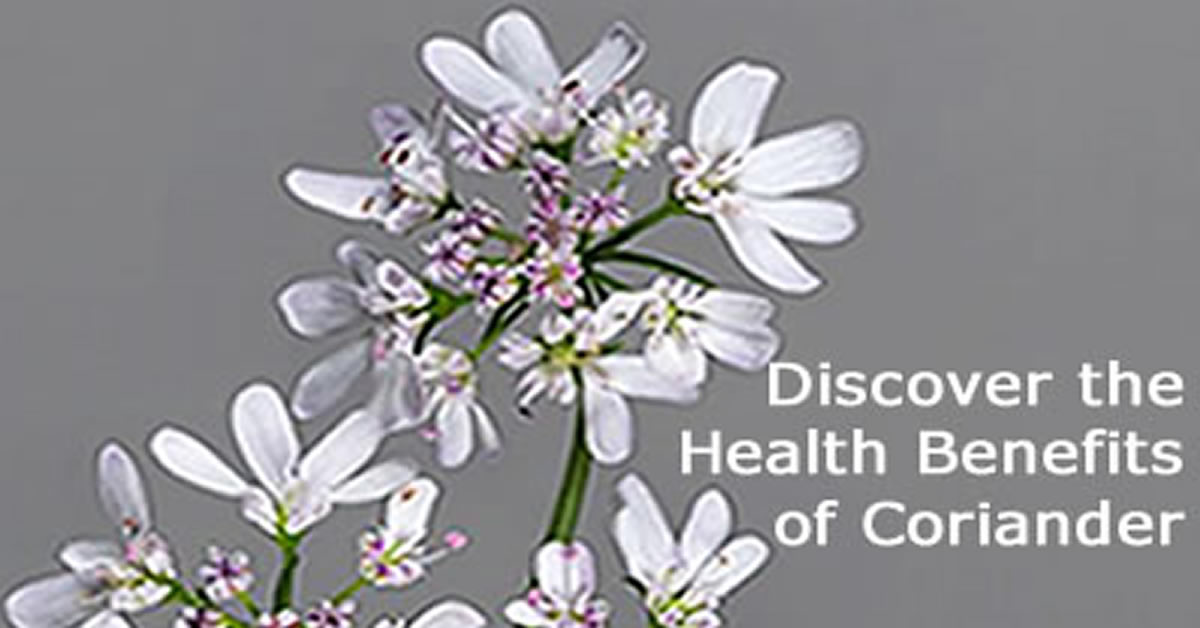Coriander
Coriander: A Comprehensive Exploration of Its Benefits, History, Effectiveness, Efficacy, Safety, Immune-Boosting Properties, and How to Prepare and Consume it…
Introduction
Coriander, also known as Coriandrum sativum, is a herb that is widely used in various cuisines around the world for its distinctive flavor and aroma. Beyond its culinary uses, coriander has a rich history of medicinal and therapeutic applications. In this comprehensive exploration, we will delve into the world of coriander, examining its historical roots, benefits, effectiveness, efficacy, safety profile, immune-boosting properties, and provide insights into how to prepare and consume this versatile herb.
 Historical Perspective: To understand the significance of coriander, it’s essential to explore its historical context. Coriander has a long history of use that spans thousands of years across different cultures.
Historical Perspective: To understand the significance of coriander, it’s essential to explore its historical context. Coriander has a long history of use that spans thousands of years across different cultures.
- Ancient Egypt: Coriander was mentioned in ancient Egyptian texts and found in tombs dating back to 1550 BC. It was used both as a spice and for its medicinal properties.
- Ancient Greece and Rome: The Greeks and Romans used coriander in cooking and believed in its aphrodisiac properties. They also utilized it to preserve meat due to its antimicrobial effects.
- Ayurvedic Medicine: In traditional Indian medicine (Ayurveda), coriander was used to treat a variety of ailments, including digestive issues and skin conditions.
- Medieval Europe: Coriander was commonly used in medieval European cuisine and was thought to have magical properties. It was also used to mask the smell of spoiled food.
- Contemporary Uses: Today, coriander is a staple in kitchens worldwide and is used in various culinary dishes, from curries to salads. Its medicinal applications continue to be explored in scientific research.
Benefits of Coriander: Coriander offers a range of potential health benefits, both from a culinary and medicinal perspective. Here are some of the key benefits:
- Digestive Health: Coriander is known for its digestive properties. It can help alleviate symptoms of indigestion, bloating, and gas. The essential oils in coriander, such as linalool and borneol, are believed to have a soothing effect on the digestive system[i].
- Antioxidant Properties: Coriander is rich in antioxidants, including quercetin, tocopherols, and beta-carotene. These compounds help combat oxidative stress and reduce the risk of chronic diseases[ii].
- Anti-Inflammatory Effects: Coriander contains anti-inflammatory compounds like cineole and linoleic acid, which may help reduce inflammation in the body[iii].
- Cholesterol Management: Some studies suggest that coriander may have a positive effect on lipid profiles, potentially helping to lower cholesterol levels[iv].
Effectiveness and Efficacy: To assess the effectiveness and efficacy of coriander, it’s essential to consult peer-reviewed medical literature. While coriander has a long history of use for various health purposes, modern scientific research continues to uncover its potential benefits.
- Digestive Health: A study published in the “Journal of Ethnopharmacology” found that coriander extracts exhibited significant gastroprotective effects, helping to protect the stomach lining and reduce the risk of gastric ulcers.
- Antioxidant Properties: Research published in the “Journal of Agricultural and Food Chemistry” highlighted coriander’s potent antioxidant activity, which can help neutralize free radicals and reduce oxidative stress in the body.
- Anti-Inflammatory Effects: Coriander’s anti-inflammatory properties have been studied in relation to conditions like arthritis. A study in the “Journal of Clinical Biochemistry and Nutrition” demonstrated its potential in reducing joint inflammation.
- Cholesterol Management: Some animal studies have shown that coriander extracts may help lower cholesterol levels by influencing lipid metabolism. However, more research is needed to confirm these effects in humans.
Safety Profile: Coriander is generally recognized as safe when consumed in moderate amounts as a spice or as part of a balanced diet. However, like any food or herb, some individuals may be sensitive or allergic to coriander, experiencing symptoms such as skin rashes, itching, or digestive discomfort.
There have been rare reports of coriander allergy, but it’s essential to be cautious if you have known allergies to spices or herbs. If you experience any adverse reactions after consuming coriander, it’s advisable to consult a healthcare professional.
Immune-Boosting Properties: Coriander’s potential immune-boosting properties are linked to its antioxidant content, particularly quercetin and beta-carotene.
- Quercetin: Quercetin, found in coriander, has been studied for its ability to modulate the immune response. It may help reduce inflammation and support immune function.
- Beta-Carotene: Beta-carotene, a precursor to vitamin A, is essential for maintaining the integrity of mucous membranes and skin, which are crucial components of the immune system.
While coriander can contribute to overall health and potentially support the immune system indirectly through its antioxidant content, it should be part of a balanced diet that includes a variety of fruits, vegetables, and other nutrient-rich foods to provide comprehensive immune support.
How to Prepare and Consume Coriander: Coriander can be used in various forms, and its seeds and leaves offer distinct flavors and culinary applications. Here’s how to prepare and consume coriander:
- Coriander Leaves (Cilantro):
- Fresh coriander leaves, often referred to as cilantro, are commonly used in salads, salsas, and as a garnish for various dishes.
- They can also be blended into sauces and dressings to enhance flavor.
- Coriander Seeds:
- Coriander seeds are used as a spice in cooking and can be ground into a powder.
- Toasting the seeds before grinding can intensify their flavor.
- Coriander Powder:
- Ground coriander is a versatile spice used in curry blends, soups, and marinades.
- Coriander Tea:
- Coriander seeds can be used to make a soothing herbal tea. To prepare, simply steep a teaspoon of coriander seeds in hot water for 5-10 minutes, strain, and enjoy.
Incorporating coriander into your diet not only adds a burst of flavor to your dishes but also provides potential health benefits, making it a valuable addition to a balanced diet.
Conclusion: Coriander, with its rich history, diverse culinary applications, and potential health benefits, is a herb worth exploring in both your kitchen and your holistic wellness routine. From aiding digestion to providing antioxidant support, coriander’s versatility makes it a valuable ingredient in various cuisines worldwide. While its immune-boosting properties are associated with its antioxidant content, it’s important to view coriander as part of a broader strategy for overall health and well-being. As with any dietary change or supplement, it’s advisable to consult with a healthcare professional, especially if you have known allergies or medical conditions, to ensure that coriander is a safe and suitable addition to your diet.
[i] Mahleyuddin NN, Moshawih S, Ming LC, Zulkifly HH, Kifli N, Loy MJ, Sarker MMR, Al-Worafi YM, Goh BH, Thuraisingam S, Goh HP. Coriandrum sativum L.: A Review on Ethnopharmacology, Phytochemistry, and Cardiovascular Benefits. Molecules. 2021 Dec 30;27(1):209. doi: 10.3390/molecules27010209. PMID: 35011441; PMCID: PMC8747064. https://www.ncbi.nlm.nih.gov/pmc/articles/PMC8747064/
[ii] Scandar S, Zadra C, Marcotullio MC. Coriander (Coriandrum sativum) Polyphenols and Their Nutraceutical Value against Obesity and Metabolic Syndrome. Molecules. 2023 May 19;28(10):4187. doi: 10.3390/molecules28104187. PMID: 37241925; PMCID: PMC10220854. https://www.ncbi.nlm.nih.gov/pmc/articles/PMC10220854/
[iii] Mechchate H, Es-Safi I, Amaghnouje A, Boukhira S, A Alotaibi A, Al-Zharani M, A Nasr F, M Noman O, Conte R, Amal EHEY, Bekkari H, Bousta D. Antioxidant, Anti-Inflammatory and Antidiabetic Proprieties of LC-MS/MS Identified Polyphenols from Coriander Seeds. Molecules. 2021 Jan 18;26(2):487. doi: 10.3390/molecules26020487. PMID: 33477662; PMCID: PMC7831938. https://pubmed.ncbi.nlm.nih.gov/33477662/
[iv] Dhanapakiam P, Joseph JM, Ramaswamy VK, Moorthi M, Kumar AS. The cholesterol lowering property of coriander seeds (Coriandrum sativum): mechanism of action. J Environ Biol. 2008 Jan;29(1):53-6. PMID: 18831331. https://pubmed.ncbi.nlm.nih.gov/18831331/

